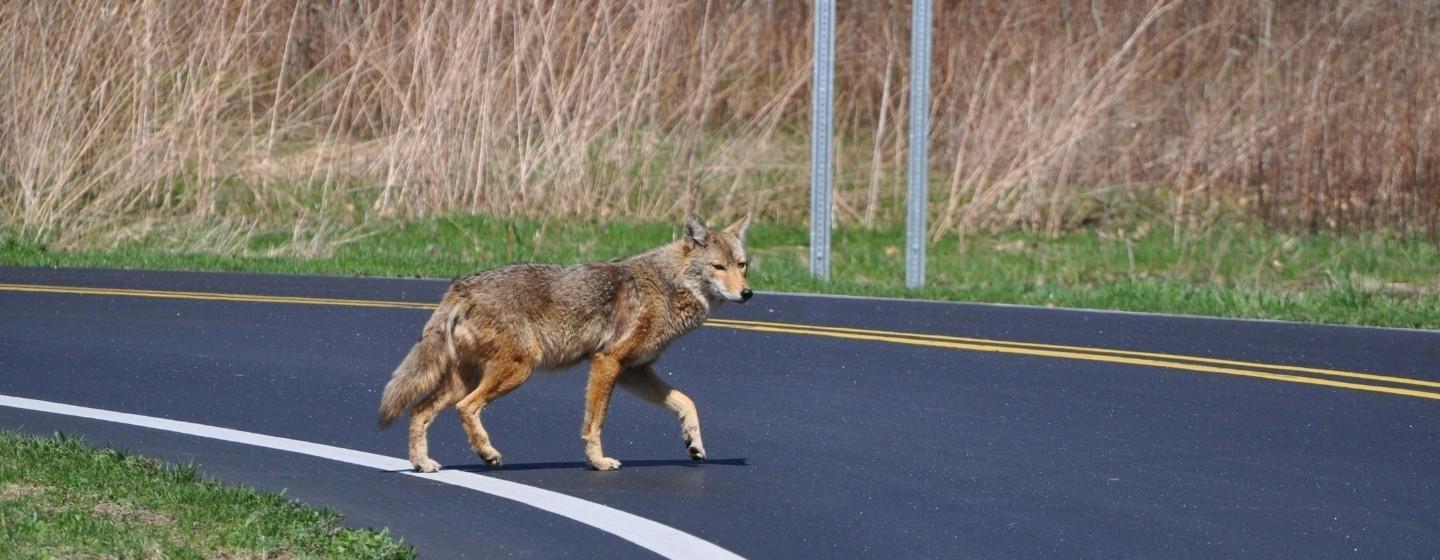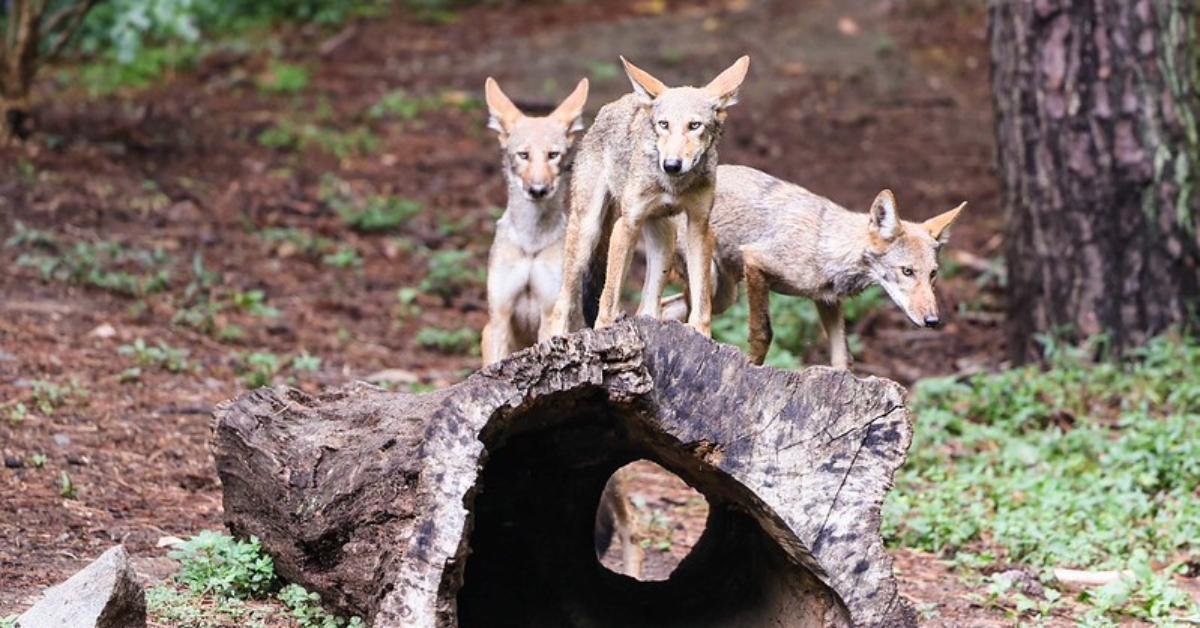Could Wildlife Crossings Save the Red Wolf?


The only red wolves remaining in the wild live at the Alligator River National Wildlife Refuge on the Outer Banks of North Carolina.
Wildlife biologists say 17 to 19 red wolves reside in over 150,000 acres of beautiful wetlands and fields, a transition between the urban areas and farmlands of the Piedmont and oceanfront beaches and tourist spots.
The most popular route to the Outer Banks is U.S. Highway 64, which passes through the refuge. Sadly, vehicle strikes are red wolves’ biggest threat.
But there’s good news that might help save the critically endangered animal.
The Federal Highway Administration has awarded $25 million to the North Carolina Department of Transportation (NCDOT) to construct wildlife crossings through the refuge that can provide safe passage for the red wolves.
“These structures are expected to greatly reduce the road mortality threat to Red Wolves and other species, while also keeping motorists safe on the busy beach highway that heads to the famous Outer Banks,” said Ron Sutherland, Ph.D., chief scientist at the conservation organization Wildlands Network, in a press release.
The grant from the Wildlife Crossings Pilot Program will provide funds to build 11 wildlife underpasses along the highway through the refuge.
The federal funds come from the 2021 Bipartisan Infrastructure Law, which set up a five-year program of competitive grants to states, tribes and federal agencies. NCDOT applied in September 2024 for money to build crossings and fencing to guide animals to the crossings on a key stretch of U.S. 64 that has been a hotspot for vehicle collisions with red wolves, bears and other species.
There’s no word yet whether the Trump Administration will withhold funding for the project.
NCDOT is contributing more than $6 million to the project. Construction of the wildlife passages will also be supported by $4 million in funds raised by several other groups including the Center for Biological Diversity, Wildlands Network and an anonymous donor.
Supporters say the project will not only save animals but also spare humans from injuries and vehicle damage from hitting wildlife.
“The wildlife road crossings that will be built with funding from the Federal Highway Administration will benefit not just Red Wolves but all kinds of other wildlife too. U.S. 64 cuts right through the top end of the immense and biologically diverse Alligator River National Wildlife Refuge,” said Ron Sutherland, in this press release. “The combination of busy beach highway and high density of wildlife leads to carnage on the asphalt every year.”
A daily roadkill survey conducted by Wildlands Network starting August 1, 2024, counted more than 2,400 dead animals on U.S. 64 by December 2024, including bears, birds, bats, deer and more than 700 turtles, 700 snakes and 600 amphibians.
But the vehicle strikes have devastated the red wolf population the most.
Habitat loss and overhunting virtually wiped out the red wolf, which was once found through most of the Southeastern U.S. In 1980, the red wolf was declared extinct in the wild under the Endangered Species Act.
However, seven years later, four pairs of captive-bred red wolf pups, which were the offspring of several red wolves captured in Louisiana, were released in the North Carolina refuge. Careful management helped the population rebound to about 120 wolves by 2012, but political and public support lessened, and management efforts were scaled back.
The population continued to decline, this time to around seven wolves, which prompted environmental groups to go to court to restore the program. The population is slowly rebounding but vehicle deaths have undone much of the recovery.
Six red wolves have been killed by vehicles in the past five years. While all the deaths are a setback for the population, the most notable loss happened in June 2024, when the death of a breeding male red wolf on the highway led to the demise of his five young pups in the wild.
“We know the benefits wildlife corridors can provide to species traversing our state’s roadways, and perhaps none are in more need of safe passage than Red Wolves," said Ben Prater, Southeast program director for nonprofit conservation group Defenders of Wildlife. “In the face of environmental changes that are increasingly transforming and fragmenting the landscape, this funding comes at a critical time, when we have the opportunity to make our roadways safer for motorists and wildlife alike.”

Two breeding pairs of red wolves come to Durham and Columbia, NC, as part of a nationwide effort to restore the critically endangered species.